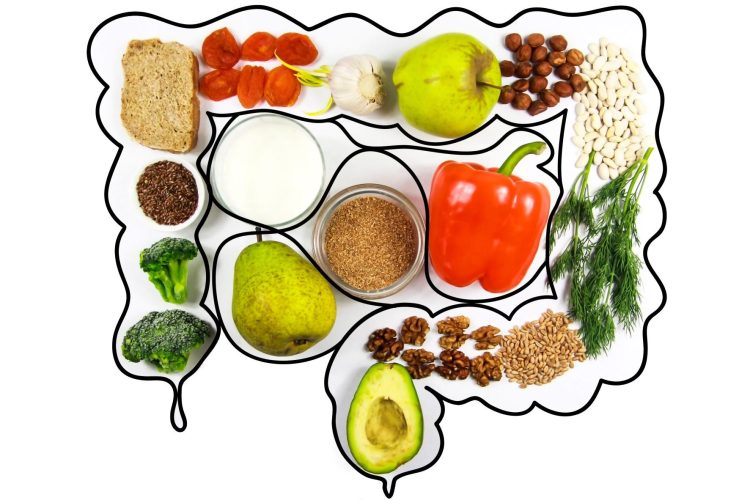Many of us, when we start a new year, are searching for methods to enhance our general health and wellness in preparation for the year ahead. The health of one’s digestive tract is one aspect that is frequently neglected among both men and women. The condition of our gut health affects not just our ability to digest food and mount an immune response, but also our mood and our mental and emotional well-being.
In this blog, we will discuss the foods that are most beneficial to the health of your digestive tract in the year 2023. We’re going to take a deeper look at the best alternatives for supporting a healthy gut which can range from fermented foods to those that are rich in probiotics.
What Are The Best Foods For Gut Health?
The meals that are greatest for the health of the digestive tract are those that encourage the growth of beneficial bacteria in the microbiome of the gut. Some of the best foods include:
Fermented Foods: Foods that have been fermented include yoghurt, kefir, kimchi, sauerkraut, and others. These fermented foods are loaded with probiotics, which are the good bacteria that dwell in the digestive tract.
Foods High In Fiber: Eating foods high in fibre can help keep your digestive tract healthy since it encourages regular bowel movements and feeds the good bacteria that live in your digestive tract. Fruits, vegetables, legumes, and grains that have been completely digested are all excellent sources of fibre.
Foods High In Prebiotics: Prebiotics are non-digestible carbohydrates that serve as a food source for the probiotic bacteria that live in your digestive tract. Bananas, garlic, onions, and asparagus are some examples of foods that fall under this category.
Collagen: Collagen, which is abundant in bone broth, has been shown to help soothe and mend the lining of the digestive tract.
Supplements Containing Probiotics: Although it is preferable to obtain probiotics through foods, taking supplements might be a more convenient approach to enhance the amount of probiotics you consume.
It is essential to steer clear of foods that are known to be detrimental to gut health, such as those that are highly processed, include a lot of sugar, and have a high saturated fat content. That said, it is always a good idea to visit a healthcare expert or a nutritionist such as our very own experts for advice that is specifically tailored to your needs.
Why Should You Take Care Of Your Gut Health?
It is essential to prioritise the health of your gastrointestinal tract for a variety of reasons, including the following:
Digestion: Having a healthy stomach may assist in ensuring that food is digested correctly and that nutrients are absorbed properly.
Immune System: A substantial percentage of the immune system is located in the gastrointestinal tract (GI tract), and a healthy microbiome in the GI tract can support the immune system and protect against infections.
Mood: Research indicates that there is a connection between the stomach and the brain, and that having a healthy gut may be linked to having a higher mood and overall mental well-being.
Weight Management: The microbiome of the gut can have an effect on both the metabolism and the energy balance of the body, and having a healthy gut may make it easier to manage one’s weight.
Chronic Disease: It has been hypothesised that a healthy microbiome in the gut may lower the chance of developing some chronic diseases, such as obesity, type 2 diabetes, and heart disease.
Allergic Reactions And Autoimmune Conditions: Having a healthy gut can help lower the likelihood of developing allergic reactions and autoimmune conditions.
It is essential to keep in mind the various aspects of one’s life that can have an impact on their gut health, such as their food, their level of stress, and the medications they use. As a result, it is necessary to take a holistic approach in order to keep a healthy gut.
Tips And Suggestions For Incorporating Gut-Healthy Foods Into Your Daily Meals And Snacks
It can be simple and fun to include items that are good for your gut in your regular meals and snacks. Start by enjoying a small bowl of fermented veggies like kimchi or sauerkraut to start the day off well. You can also add a dollop of yoghurt or kefir to your cereal for morning. Fruits, vegetables, whole grains, legumes, and other fiber-rich meals are excellent for encouraging regular bowel movements and nourishing the good bacteria in your stomach.
That being said, snack on fruits and fresh veggies like carrots and celery throughout the day, or serve roasted vegetables as a side dish with your lunch or supper. Including foods high in prebiotics, such as asparagus, garlic, and onions, can also be advantageous. You can also use bone broth as a foundation for soups and stews or have a cup as a snack to include it into your diet on a regular basis.
Probiotic supplements used as prescribed by our medical experts, together with a diet free of processed foods, foods rich in sugar and saturated fats, can all contribute to gut health. Making your own fermented foods is another option. You may also make salads with mixed greens, tomatoes, onions, and avocado or trail mix with nuts, seeds, and dried fruits. If you’re not sure where to start, always get specific guidance from our experts to determine whether any foods should be avoided.



